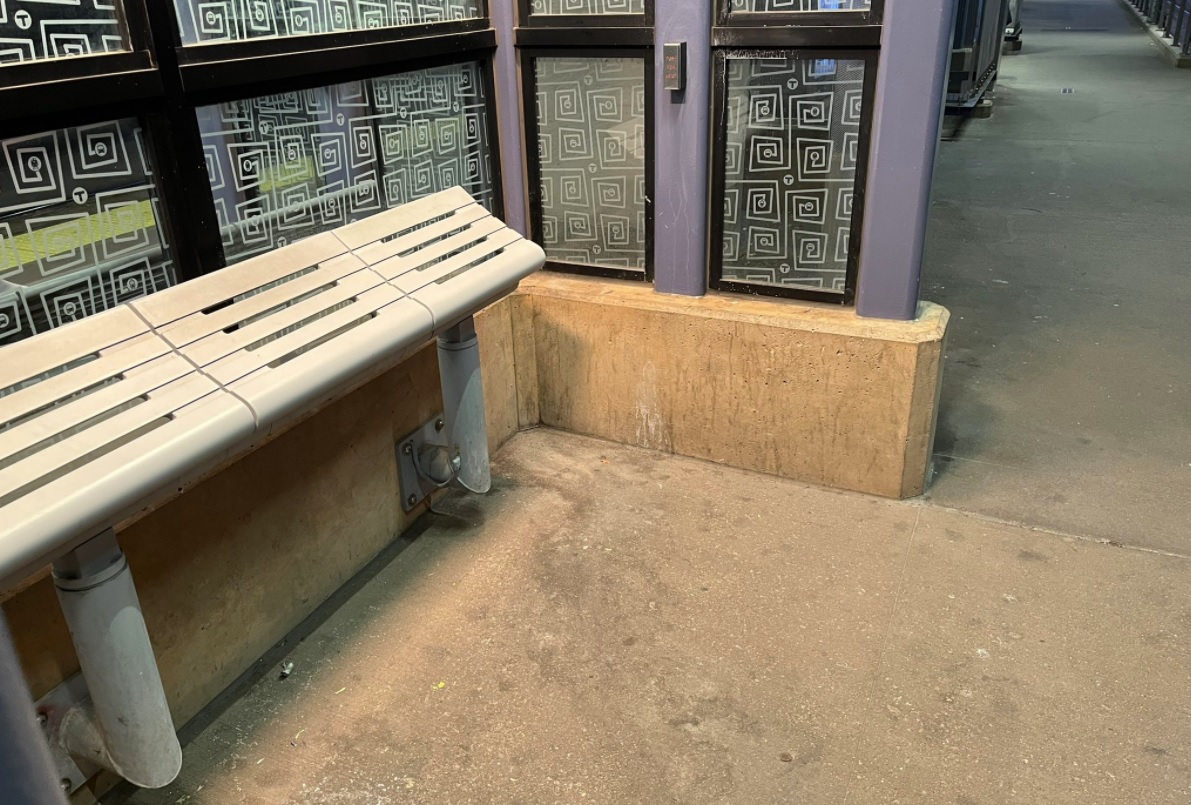Slanted public transit benches, by design, aren’t comfortable for anyone.
Additionally, as revealed by a locally viral tweet, many Twin Citians consider the slanted benches at several Metro Transit stops punitive and dehumanizing to unhoused populations.
They're also a drag for young and/or tired populations. And populations with mobility issues. Not to mention populations who simply prefer a comfortable sit.
I know these are designed to make the “benches” uncomfortable for people who might have to sleep at the @MetroTransitMN stations. I hate them. You know who else they’re uncomfortable for? Me. It’s freezing and I’d love to sit for a moment on my way todaily radiation treatments. pic.twitter.com/heC8oOC05I
— Stacey Burns (@WentRogue) November 19, 2021
Metro Transit spokesman Howie Padilla is aware that riders hate the slanted benches. They were implemented as the Green Line was developed in the early ‘10s, he says, and their lack of popularity quickly became apparent.
“What we found was, the lean bars certainly aren’t preferable to regular benches,” he says. “So we started switching those over.”
Thirty-eight slanted benches were swapped out for standard ones in 2019, Padilla says. To his knowledge, slanted ones only remain at three St. Paul light rail stops: Robert Street, Western Avenue, and Victoria Street.
"We’re aware of the [anti-homelessness] concerns," Padilla says. "It happens when you’re the last door open; none of us like that. I will say we want people experiencing homelessness to have the services and safe places they need."
The benches are examples of "hostile architecture," a method of design that impedes the use of public spaces, especially for unhoused or vulnerable populations who have nowhere else to rest. Think vertical bolts surrounding apartment complexes, boulders piled around roadside homeless encampments, and, of course, annoying benches. In essence, hostile architecture serves the same purpose as the anti-pigeon spikes you see wrapped around buildings, but in these cases the pigeons are people.
"The elements that make spaces hostile for targeted populations also make them hostile for the general public," Cara Chellew, a researcher at Toronto's York University, told Architectural Digest in 2018. "Vulnerable groups of people suffer disproportionately when there is a lack of benches, public washrooms, and shelter from the elements."
On a given night, 7,940 Minnesotans will experience homelessness, according to 2020 data from the U.S. Department of Housing and Urban Development. COVID-19 is "stretching an already fragile system" to care for those people, the PiPress reports.
The fact our public transit authority needs to think like a de facto public housing authority? That's a ringing indictment of a country that just spent $5.8 trillion on two decades of pointless war, though swapping out cruel systems is a lot harder than swapping out cruel benches.






